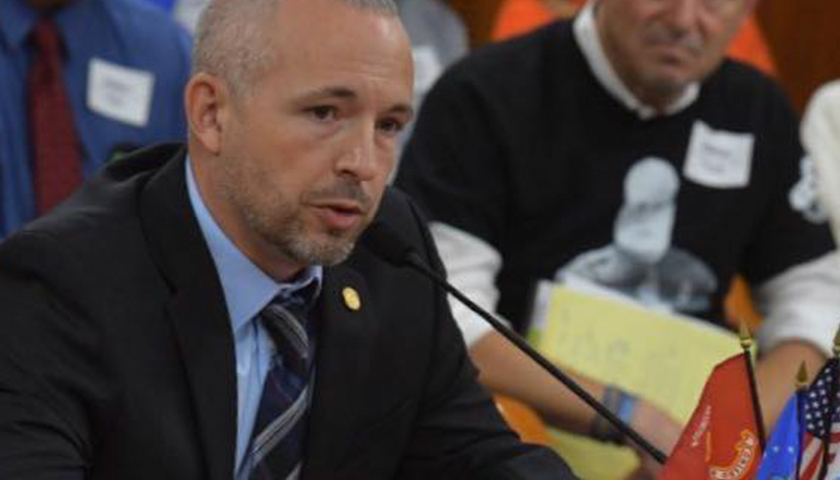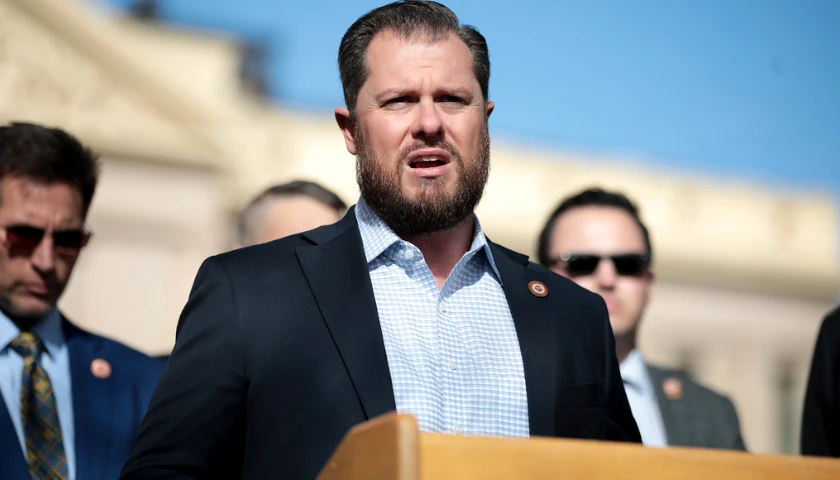by Bruce Walker
Although she thinks it’s only a “start,” Gov. Gretchen Whitmer applauded the bipartisan budget passed Thursday night by the Michigan House of Representatives.
The House voted to pass the budget before the July 1 deadline, and includes the governor’s proposal to implement the largest increase in K-12 public school spending in the state’s history. Whitmer’s office claims the $16.7 billion in school expenditures will “close the gap between the lowest- and highest-funded school districts for the first time since the goal was introduced in 1994.”
The budget also aims to
- Eliminate the funding gap between highly funded and lower-funded school districts
- Open up 22,000 new spots for early childhood education programs
- Invest more than a half-billion dollars in debt in the teacher retirement system, protecting pensions for teachers for decades to come
- Provide a 2% increase for local government parks, road repairs, police & fire services, and more
- Increase funding for public safety
- Increase funding for dam safety and necessary repairs
Additionally, the budget, if signed by the governor in its current form, will fully fund or expand:
- The Michigan Reconnect job training program
- The Great Start Readiness Program will receive $168 million to support early childhood education
- The Clean Slate initiative to expand the state’s expungement system,
- A wage increase for direct care workers
More than $4 billion of federal COVID-19 relief funding will provide an additional $1,093 funding per student. Another $560 million will be spent to shore up the state’s school retirement system.
The budget for community colleges and universities will be addressed in a future measure.
“The bills passed by the House today represent bipartisan progress in the budget process and are a step in the right direction as we continue Michigan’s economic jumpstart,” Whitmer said in a statement. “This framework is a strong start and proposes historic investments in public education, bumps up pay for direct care workers, and puts more people on tuition-free paths to higher education and skills training. However, we still have a lot of work to do to get this across the finish line, and I look forward to action from the Senate by July 1st so we can deliver for Michigan’s families, small businesses, and communities.”
Legislators note the proposed budget will maintain the state’s general fund at approximately the same amount as the current budget year.
House Speaker Jason Wentworth, R-Clare, took part in negotiations with the governor and the state Senate and voted in favor of the proposal.
“Passing this budget is a big step in getting Michigan back to normal and helping our friends, family and neighbors get their lives back on track,” Wentworth said in a statement. “The people of Michigan have been through a lot this past year, and now they need a state government that can provide the services they need to get back to normal as soon as possible.”
Appropriations Committee Chair Rep. Thomas Albert, R-Lowell, agreed.
“After this challenging past year-and-a-half, the people of Michigan deserve some stability and certainty in what to expect from their state government,” said Albert.
“This budget plan addresses a glaring need – how to help kids catch up on lost learning and get back on track to a bright future,” Albert continued. “Afterward, there will be more work to do this summer – deciding which investments to make in infrastructure and reducing debt to put Michigan in the strongest position possible as we emerge from the COVID-19 pandemic.”
Dan Quisenberry, president of the Michigan Association of Public School Academies, celebrated the State House’s passage of the school-aid bill.
“This is a day that’s been a long time coming,” Quisenberry said. “The vast majority of students in Michigan charter schools are minority children living below the poverty line, so it’s especially important that they receive the resources they need to succeed. Every child deserves a quality education in a quality school, and eliminating the gaps in funding is an important milestone in achieving that goal. We encourage the Senate to follow suit in closing the equity gap by passing this budget before June 30.”
– – –
Bruce Walker is a regional editor at The Center Square. He previously worked as editor at the Mackinac Center for Public Policy’s MichiganScience magazine and The Heartland Institute’s InfoTech & Telecom News.
Photo “Jason Wentworth” by Jason Wentworth.








